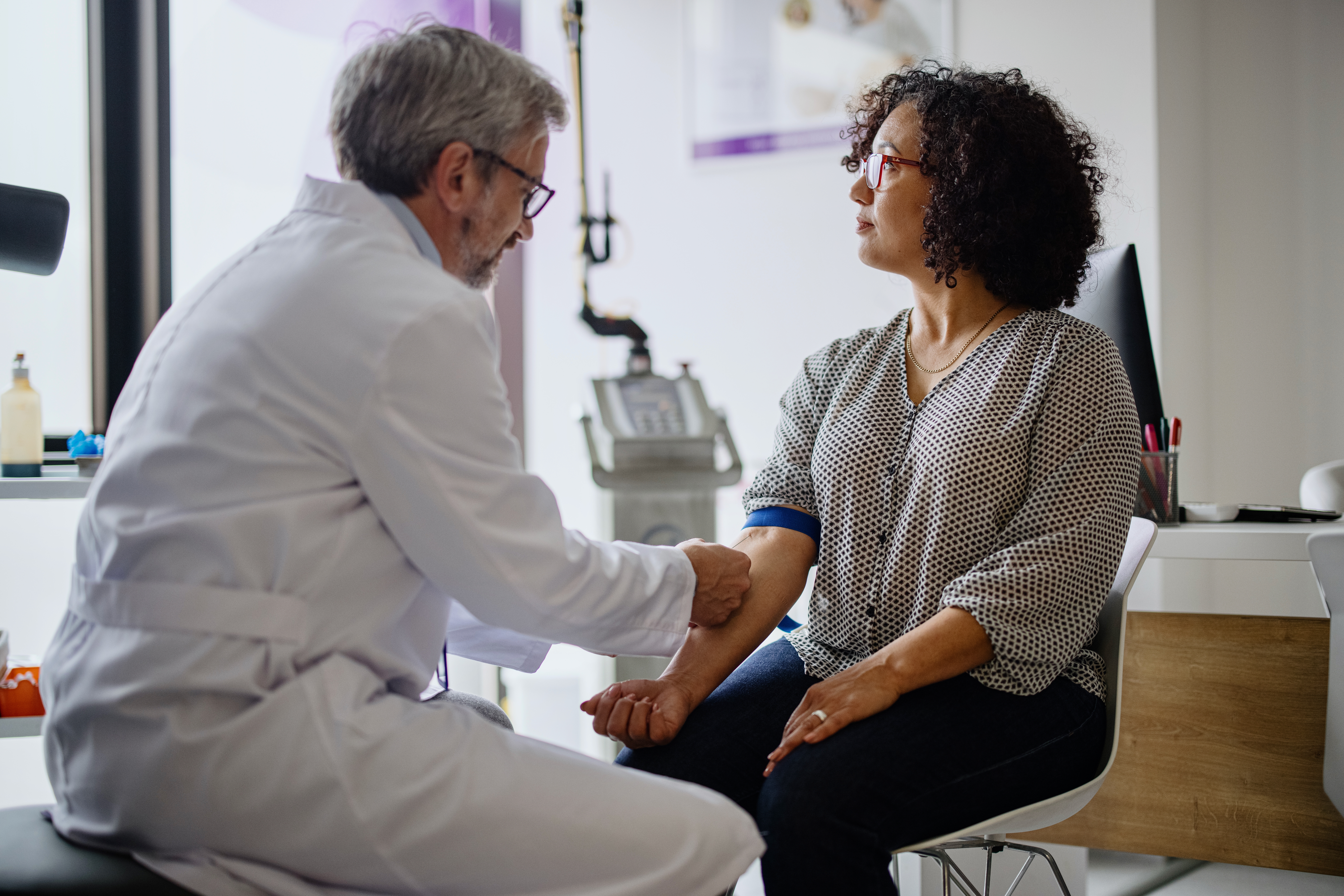Doctors Gaslighting Women? Pelvic Pain Study Reveals Shocking Truth
Doctors Gaslighting Women's Pain? The Pelvic Disorder Crisis
Introduction: Are Doctors Dismissing Women's Pain?
Have you ever felt like your doctor wasn't really listening to you? Like they were dismissing your concerns, especially when it came to intimate health issues? You're not alone. A recent study highlights a deeply troubling trend: women seeking help for pelvic disorders are often gaslighted by their healthcare providers.
This isn't just about feeling unheard; it's about real pain, real suffering, and the potential for serious conditions to go undiagnosed. Imagine pouring your heart out, describing debilitating pain, only to be met with skepticism or, worse, outright dismissal. It's like being trapped in a medical maze, with no clear path to relief.
The Devastating Impact of Gaslighting
The study, published in JAMA Network Open, shines a light on the devastating impact of dismissive and invalidating remarks from doctors and nurses on women with vulvovaginal disorders. These remarks can lead women to abandon their search for help, leaving them to suffer in silence.
Think about it: if the very people you're supposed to trust with your health are making you feel like your pain isn't real, where else do you turn? It creates a cycle of doubt, fear, and ultimately, a poorer quality of life.
The Focus: Vulvovaginal Disorders
The research specifically focused on patients at a vulvovaginal clinic. These women were seeking medical care for a range of disorders that can cause significant pain, sexual dysfunction, and bowel or bladder problems. These aren't minor inconveniences; they're conditions that can dramatically affect a woman's daily life.
The Researcher's Perspective: Years of Hearing Patient Stories
OB-GYN Dr. Chailee Moss, the lead author of the study and an adjunct professor at George Washington University, explains that the research stemmed from “the years and years of hearing such experiences from patients and feeling like the broader medical community didn’t know how distressing the comments were to patients.”
It's a stark reminder that sometimes, the best research comes from simply listening to patients. Dr. Moss's work validates the experiences of countless women who have felt dismissed and unheard by the medical establishment.
Understanding Gaslighting in a Medical Context
What Exactly is Gaslighting?
Gaslighting, in its simplest form, is a form of manipulation where someone tries to make you doubt your own sanity or perception of reality. In a medical context, it means a healthcare provider is dismissing your symptoms, making you feel like they're "all in your head," or suggesting you're exaggerating your pain.
Examples of Gaslighting Statements
What does gaslighting actually sound like in the doctor's office? Here are some examples:
- "It's probably just stress."
- "You're probably just being sensitive."
- "It's normal to experience some discomfort."
- "Are you sure you're not imagining things?"
- "Maybe you should try relaxing more."
While these statements might seem harmless on the surface, they can be incredibly invalidating when used to dismiss legitimate medical concerns.
Why Does Medical Gaslighting Happen?
Implicit Bias and Gender Stereotypes
One of the main drivers of medical gaslighting is implicit bias. Studies have shown that doctors often underestimate women's pain compared to men's. This can be due to ingrained gender stereotypes that portray women as being more emotional or dramatic.
Lack of Knowledge and Understanding of Women's Health Issues
Another contributing factor is a lack of knowledge and understanding of specific women's health issues. Many doctors receive limited training in areas like vulvovaginal disorders, endometriosis, or polycystic ovary syndrome (PCOS). This can lead them to dismiss symptoms they don't fully understand.
Time Constraints and Systemic Issues
The current healthcare system, with its emphasis on efficiency and short appointment times, can also contribute to the problem. Doctors are often under pressure to see as many patients as possible, leaving them with limited time to listen to complex or nuanced complaints.
The Specific Conditions Often Affected
Endometriosis
Endometriosis, a condition where tissue similar to the lining of the uterus grows outside the uterus, is notorious for being misdiagnosed or dismissed for years. Women with endometriosis often face significant delays in diagnosis and treatment, leading to chronic pain and infertility.
PCOS (Polycystic Ovary Syndrome)
PCOS, a hormonal disorder that can cause irregular periods, cysts on the ovaries, and other health problems, is another condition that is often misunderstood and mismanaged. Women with PCOS may be told to "just lose weight" without addressing the underlying hormonal imbalances.
Vulvodynia and Vestibulodynia
These chronic pain conditions of the vulva are often dismissed as "all in your head." Women with vulvodynia and vestibulodynia may experience intense pain with even the slightest touch, making sexual activity and even everyday activities like sitting or wearing tight clothing unbearable.
Interstitial Cystitis (Painful Bladder Syndrome)
Interstitial cystitis, a chronic bladder condition that causes pain, pressure, and frequent urination, can also be difficult to diagnose and manage. Women with interstitial cystitis may be told that they simply have a urinary tract infection (UTI) or that their symptoms are due to anxiety.
How to Advocate for Yourself
Document Your Symptoms
Before your appointment, take the time to document your symptoms in detail. Write down when they started, how they feel, what makes them better or worse, and how they affect your daily life. This will provide your doctor with a clear and comprehensive picture of your health concerns.
Bring a Support Person
If possible, bring a trusted friend or family member with you to your appointments. They can serve as a witness, take notes, and help you remember important information. They can also provide emotional support and advocate for you if you feel overwhelmed.
Don't Be Afraid to Ask Questions
Don't be afraid to ask questions until you fully understand your diagnosis and treatment plan. It's your right to know what's going on with your body and to have your concerns addressed.
Seek a Second Opinion
If you feel like your doctor isn't listening to you or is dismissing your concerns, don't hesitate to seek a second opinion. Finding a doctor who is knowledgeable, compassionate, and willing to listen is crucial to getting the care you need.
Find a Specialist
For complex or chronic conditions, consider seeking care from a specialist who has expertise in the specific area of your concern. For example, if you have endometriosis, consider seeing a reproductive endocrinologist or a gynecologist who specializes in endometriosis.
The Role of Medical Education
Improving Training on Women's Health Issues
One of the key steps to addressing medical gaslighting is to improve medical education on women's health issues. Medical schools need to provide more comprehensive training on conditions like endometriosis, PCOS, vulvodynia, and interstitial cystitis. This will equip doctors with the knowledge and skills they need to accurately diagnose and treat these conditions.
Addressing Implicit Bias in Healthcare
Medical schools and healthcare organizations also need to address implicit bias in healthcare. This can be done through training programs that raise awareness of unconscious biases and promote culturally competent care.
The Importance of Patient Advocacy Groups
Patient advocacy groups play a vital role in raising awareness of medical gaslighting and advocating for better care for women with pelvic disorders. These groups can provide support, resources, and a sense of community for women who have felt dismissed or unheard by the medical establishment.
The Future of Women's Healthcare: A Call for Change
The study on medical gaslighting is a wake-up call. It's time for a fundamental shift in how women's healthcare is approached. We need a system that prioritizes listening to patients, validating their experiences, and providing compassionate and evidence-based care.
Conclusion: Empowering Women, Transforming Healthcare
The findings of the study are alarming, but they also present an opportunity for change. By raising awareness of medical gaslighting, empowering women to advocate for themselves, and improving medical education, we can create a healthcare system that truly supports and respects women's health. Remember, you are not alone, your pain is real, and you deserve to be heard. Don't stop fighting for the care you deserve.
Frequently Asked Questions
Here are some frequently asked questions related to medical gaslighting and women's health:
-
What are some signs that I might be experiencing medical gaslighting?
If your doctor consistently dismisses your symptoms, makes you feel like you're exaggerating, or suggests that your pain is "all in your head," you may be experiencing medical gaslighting. Other signs include feeling unheard, invalidated, or like your concerns aren't being taken seriously.
-
What can I do if I feel like I'm being gaslighted by my doctor?
First, trust your gut. If you feel like something isn't right, seek a second opinion. Document your symptoms and bring a support person to your appointments. Don't be afraid to ask questions and advocate for yourself.
-
How can I find a doctor who will listen to me and take my concerns seriously?
Look for doctors who are board-certified in their specialty and have experience treating the specific condition you're concerned about. Read online reviews and ask for recommendations from friends, family, or patient advocacy groups. During your first appointment, pay attention to how the doctor listens to you and responds to your questions.
-
Are there specific types of doctors who are more likely to gaslight women?
While medical gaslighting can happen in any medical specialty, studies suggest that it is more common in areas like gynecology, pain management, and mental health. This may be due to factors like implicit bias, lack of knowledge, and the complexity of these conditions.
-
How can I support other women who are experiencing medical gaslighting?
Listen to their experiences, validate their feelings, and encourage them to seek a second opinion. Share resources and information about medical gaslighting. Advocate for better training and education for healthcare providers on women's health issues.

